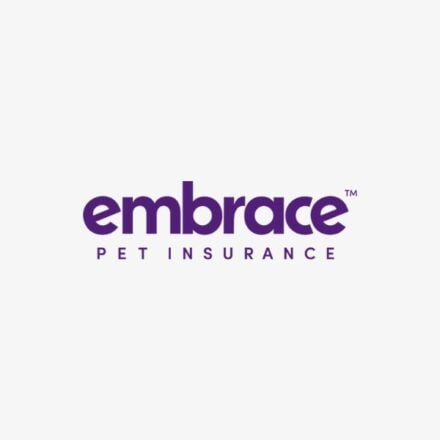If you’re the proud parent of a Cardigan Welsh Corgi or a Pembroke Welsh Corgi, you know how much fun this breed can be. But sometimes, our dogs are predisposed to health conditions based on their breed, and they experience hardships based on the luck of the draw. Unfortunately, no dog is immune to health issues.
This is why it’s good to know what potential health threats are associated with the breed to find the best insurance coverage for your Corgis. Our dedicated insurance guide for Corgis includes the most common health issues for the breed, as well as a list of health insurance considerations to find the best fit for your needs.
As with all breeds, each dog is unique, and your budget isn’t the same as your neighbor’s. At 10-13 inches tall and weighing 25-40 pounds, this adventurous breed is just as susceptible to accidents and illnesses as any other dog. Fortunately for you, we can help you find the best insurance coverage for your affectionate best friend.
At A Glance

Best
Overall

Best For
Older Dogs

Best For Bilateral Conditions
Note: Clicking the above links take you to each company’s website to learn more and get a quote. If you make a purchase, we earn a commission at no additional cost to you.
Is Pet Insurance Worth It?
The short answer is yes. A survey by Liberty Mutual Insurance states that 63% of pet owners couldn’t afford unexpected medical care for their pets. Pet insurance allows you to choose the best medical treatment for your pet while also providing stability to your finances.
The critical thing to remember is that you need to sign up for insurance before an emergency arises. You cannot count on coverage for your Corgi’s pre-diagnosed health issues. So it’s crucial to get your dog covered as soon as possible.
Common Health Issues In Corgis

Like all purebreds, they’re more predisposed to specific health concerns due to genetics. There’s no certainty in whether your dog will suffer from none, some, or different issues altogether. However, the health issues below can give you an idea of what to look for regarding symptoms and insurance coverage.
Hip Dysplasia
Hip dysplasia is a chronic condition where the head of the femur bone doesn’t fit correctly into the hip socket. This is one of the most commonly occurring orthopedic conditions in dogs and is most common in large dog breeds. Surgery is often needed to improve the quality of your dog’s life. And this procedure ranges from $1,700 to $4,500+, depending on the type of surgery required.
Intervertebral Disc Disease (IVDD)
IVDD, also referred to as a slipped or herniated disc, is a condition in which the discs between the dog’s vertebrae move or bulge into the spinal canal. This can cause extreme pain, nerve damage, and even paralysis. Corgis are especially vulnerable to IVDD because of their disproportionately short limbs and long backs.
Diagnosis and treatment for IVDD can be extremely costly. Potential costs include X-rays, CT (computed tomography), MRI (magnetic resonance imaging), pain management medication, surgery, frequent check-ups to assess condition, physiotherapy, hydrotherapy, hospital stay, and more. After testing and treatment, you could be facing $3,000 to $8,000 in vet bills.
Degenerative Myelopathy (DM)
Degenerative myelopathy is a hereditary spinal cord disease that begins to present in a dog’s adult years. It’s similar to the human disease amyotrophic lateral sclerosis (ALS), also known as Lou Gehrig’s disease. Dogs that suffer from DM experience weakening and the inability to control their hind limbs, ultimately leading to paralysis.
A definitive diagnosis of DM is problematic because a vet can only do it postmortem by examining the spinal cord. However, vets suspect diagnosis by a series of tests that eliminate other conditions. Vets may conduct X-rays, CT scans, MRI scans, tissue biopsies, cerebrospinal fluid analysis, and neuromuscular tests to rule out other conditions like hip dysplasia, IVDD, arthritis, etc.
There’s no medication or treatment for DM to cure or stop the progression. Most dogs diagnosed with DM live six months to three years. DM isn’t considered painful, but to maintain your dog’s quality of life, your vet may recommend physical therapy, hydrotherapy, a well-balanced diet, supplements, and routine exercise. The diagnosis and preservation of your dog’s quality of life can quickly reach thousands of dollars.
Progressive Retinal Atrophy (PRA)
Progressive retinal atrophy is a hereditary disease that causes the slow progression of blindness. PRA is inherited from both parents, and at-home DNA tests can identify the PRA mutation (having the mutation doesn’t mean your dog will develop PRA, but they’re at an increased risk). Unfortunately, Corgis are on the list of unlucky breeds predisposed to PRA.
Your vet may refer you to a veterinary ophthalmologist for a PRA test called an electroretinogram (ERG), costing around $400. Genetic testing may also be ordered for an additional fee. Unfortunately, there’s no treatment for PRA. However, diagnosis can be costly, and adjusting your dog’s environment by putting up gates, fences, etc., can add up.
Considerations When Choosing An Insurer

Having many options is nice, but it can make it challenging to decide.
Age Restrictions & Waiting Periods
Most pet insurance companies have a minimum age requirement (typically between six and eight weeks old) before allowing you to enroll your pet. And some companies cap the age at which you can cover an older dog (14 years old is the most common, although it’s only a few companies). Additionally, some companies may exclude specific conditions from coverage if your pooch is above a certain age (e.g., hip dysplasia, cruciate ligament surgery, and orthopedic disorders).
All providers have waiting periods, which are short periods at the beginning of the policy until your pet’s condition is eligible for reimbursement. Keep in mind that any pre-existing conditions, accidents, or illnesses diagnosed or showing symptoms during the waiting period are excluded from coverage. The average waiting period for illnesses is 14 days and for accidents is less than five days.
Coverage Type
There are two types of insurance coverage to choose from:
- Accident-Only – These policies offer coverage for accidents (e.g., torn ligaments, broken bones, etc.), so basically any sudden physical injury. Accident-only plans are typically more affordable than accident and illness policies. This can be a good option for a pet with many pre-existing conditions.
- Accident and Illness – These policies are the most popular because they cover both accidents and illnesses (i.e., cancer, arthritis, allergies, etc.), including most unexpected medical expenses. Because no provider covers pre-existing conditions, it’s crucial to sign your pet up for coverage as young as possible.
Some companies also offer a wellness plan (aka preventative care plan) during the enrollment process. This commonly covers routine vet expenses (i.e., annual exams, spay/neuter procedures, vaccinations, etc.) but varies by provider. It’s typically available as an add-on to an accident-only or accident and illness policy, but some companies allow you to purchase it without an insurance policy. This add-on coverage isn’t technically an insurance product.
To find the best option for your Corgi, you need to consider the correct type of coverage and your budget.
Premium: Deductible, Reimbursement & Payout Options
The fee you pay for your Corgi’s pet insurance coverage is the premium usually paid monthly or annually. According to NAPHIA (North American Pet Health Insurance Association), the average monthly premium for an accident and illness insurance policy in the U.S. in 2022 was $53.34 for dogs. Of course, this varies for every dog and situation, including yours, so be sure to get multiple quotes from top-rated companies.
The premium is based on several factors: breed, location, age, gender, pre-existing conditions, deductible, reimbursement percentage, and payout. The beginning of the list is self-explanatory, you have a Corgi, and you know your zip code, your dog’s age (or best guess), gender, and medical history. But what is a deductible, reimbursement, and payout?
- Deductible – The money you have to pay before your policy begins to reimburse you. This is typically reset each policy period (annually). However, some companies have per-incident deductibles, so you must pay this amount each time your dog suffers a new condition. Each company may have its own spin on this, so be sure to understand your policy because annual vs per-incident deductibles can impact the amount of money you’re expected to pay.
- Reimbursement – This is the percentage of a claim that you’re eligible for repayment by the company after you’ve paid your coinsurance. The most popular reimbursement options are 70%, 80%, and 90%, but some companies offer other options or limited options based on the dog’s age or location.
- Payout – The maximum amount a provider will reimburse during the policy period. Lower payout limits mean you may be responsible for more costs if your pet has expensive vet treatment.
Many companies allow you to customize your plan to fit your budget. For example, a higher deductible, higher reimbursement, and lower payout will lower your premium. However, it’s crucial to balance what your budget allows and the worst-case scenario if your Corgi’s health takes a turn for the worst and you have several vet bills needing paying.
Exclusions
Exclusions refer to the conditions not covered by your policy. This can include pre-existing conditions, hereditary disorders, musculoskeletal disorders, specific dental treatment, and more.
Another note is that a few companies require additional waiting periods for orthopedic conditions, such as hip dysplasia and IVDD. Because Corgis are at an increased risk for both hip dysplasia and IVDD, you’ll want to ensure you understand any additional restrictions for them. For these reasons, it’s crucial that you thoroughly read and understand your policy.
Who Offers The Best Policy?
Below are our top pet insurance picks for Corgis based on their breed-specific needs. And, once you are ready, we’ve made a free quote form that provides customized policy quotes from top pet insurance companies when you fill in your pet’s details. By entering your pet’s specific characteristics, you can get a better understanding of the coverage needed.
Best Overall Pet Insurance
Pets Best

- No age limits or restrictions
- Thorough coverage
- Some of the lowest prices in the industry
- Offers an Accident-only plan
Pets Best may be the best pet insurance for your Corgi because of its shorter waiting period for hip dysplasia (only 14 days), lower pricing on average, and it has no maximum age limits for enrollment. Pets Best also has few exclusions compared to other providers, including coverage for behavioral therapies and optional wellness care. Another plus is that it doesn’t have an additional waiting period for orthopedic conditions, like IVDD, a condition Corgis are prone to.
Best Pet Insurance For Older Dogs
Figo

- Excellent value for money
- Offers options for 100% reimbursement and unlimited annual payouts
- Diminishing deductible decreases by $50 each year the policyholder is claim-free until it’s $0
- Coverage includes age and weight-related concerns and hereditary and chronic conditions
Best Insurance For Bilateral Conditions
Trupanion

- One of the only companies with no bilateral exclusions
- Claims can be paid in less than 5 minutes via Trupanion Express
- 90% reimbursement and unlimited payouts for all plans
- Offers enrollment from birth
Additional Good Options
Embrace

- Premium reduces by $50 per year if no claims are made
- Covers curable pre-existing conditions, dependent on evaluation
- Exam fees included in all policies
- Offers coverage for behavioral therapy and training
- Dental treatment included
Healthy Paws

- Unlimited annual and lifetime payouts for all plans
- Fastest claim payout, on average, compared to others
- Excellent value and competitive price
- High customer satisfaction ratings
Lemonade

- AI-driven claims process
- Not available in every U.S. state
- Ability to bundle with homeowners or renters insurance policies
- Optional wellness coverage
How To Save Money
Some Corgi parents can save money on insurance policies if the following circumstances are met.
Pay Annually
Most insurance companies offer two ways of paying your premiums, either monthly or annually. In many cases, transaction fees are added to your bill. Therefore, you can avoid several transaction fees if you pay your premium annually.
Multi-Pet Discount
Many pet insurers offer multi-pet discounts for pet owners who take out several policies. You could get up to a 10% discount on your pet’s insurance, amounting to significant savings. Some companies only offer multi-pet discounts on additional pets (not the first), so be sure to clarify this point before enrolling in a new policy.
Final Thoughts
Investing in insurance for your Corgi is worth it for most pet parents. It offers peace of mind knowing that your pooch is cared for and more financial protection without fearing responsibility for high vet bills.
Each Corgi experiences their own health conditions throughout their lifespan, leading to scary times. Knowing the risks associated with this adorable breed can help you determine the best pet insurance for you. Remember to read the fine print to understand the coverage and limitations no matter the policy you choose. If you’re unsure about something or have questions, give the pet insurance company a call or speak with your vet.





